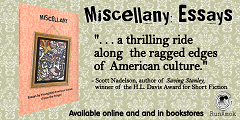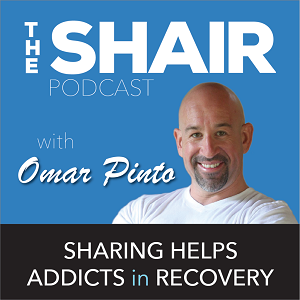Humility
I used to mistake humiliation for humility.
I thought true humility was just the opposite of arrogance. As a result, I believed self-doubt was a humbling experience. As if sitting alone in my room, locked in a shame-spiral was key to spiritual growth. I beat myself up for the things I have done, slugged away at my self-worth. If shame were a synonym for humility, you could have called me Mahatma Gandhi.
What I failed to understand was that self-pity does not cure grandiosity. Self-pity and grandiosity are part of the same ego soup. If I am thinking that I am the greatest or the worst, I am thinking too much about myself.
In order to free my thoughts from the stranglehold of my ego, I had to think about other people altogether. It has been proven true in my life over and over again: the less I am thinking about me, the happier I am.

John Wooden discovered it on the way to winning ten national championships: “Happiness begins where selfishness ends.” He wrote in his autobiography.
William Blake wrote it without ever leaving his home country: “I sought my soul, but my soul I could not see. I sought my God, and my God eluded me. I sought my brother, and I found all three.”
Alexi Murdoch knew it when he wrote “Orange Sky” on a great album, Time Without Consequence. “My salvation lies in your love.”
It was tragic when Chris McCandless—memorialized by Jon Krakauer’s book Into the Wild and Sean Penn’s subsequent film of the same name—discovered it. He wrote in his copy of Doctor Zhivago: “Happiness only real when shared” before dying alone in the Alaskan wilderness.
Bob Dylan gets it. His “Romana” says, “You’re better than no one, and no one is better than you.”
And that’s the ticket. I’ve learned that humility is not thinking too much of myself or too little. Humility means being right-sized about who I am and the role I play as a servant to the Almighty.
Factoring in this kaleidoscope of references makes me realize that humility is more than just an ego-buster; it is the source of true happiness. It is the key to walking on the level playing field of existence, ir rocketing into the fourth dimension.
In fact, humility can cure humiliation as much as it can cure grandiosity.
For if everyone thinks about themselves as much I think about myself, what is there really to be embarrassed about?
Humility gets a bad name in popular culture. In America, most of our heroes are meritorious successes who built themselves up from nothing to reach international of fame, influence, or fortune. It is difficult to see how one can be humble and a success at the same time.
Enter another great thinker on the subject: Jesus Christ, who, according to the book of John, said, “Of myself I am nothing, the Father doeth the works.” This is the strongest case for humility I know. If anyone had the right to feel a little self-important, it would be Jesus Christ. Instead, Jesus gave all credit to God in order to maintain his humility.
This is not an idea unique to the Christian Faith. Malcolm X, a devout Muslim, gave all credit to Allah for his success, adding, “only the mistakes were mine.”
Men and women of history teach us that great things are achieved through humility. And if we reach that pedestal, we only need remember the pedestal has been reached before in order to retain our humility and happiness.
 Previous Post
Previous Post Next Post
Next Post












Fantastic post, Mark.
I agree that self-pity and grandiosity are very much the same. (I want to include martyrdom and perfectionism here too – two traits which I often sink to, and are very much offshoots of self-pity and grandiosity.) When I am absorbed in the self, it manifests in many ways. Just like when I was drinking, I didn’t know what was going to come out – the belligerent one, the pitiful one, the know-it-all? All ego. Humility has been a hard, but rewarding, path for me. I have to try and remember my place in the universe on a daily basis. I am no better or no worse than anyone else. Amazing how one goes through day on an even keel when we are standing with our brothers and sisters rather than below or above them.
Thank you for this. Great way to start the morning.
Paul
Your additions are all justified. Except maybe for the real-life martyrs. What of the people who actually die for a cause? I think there are examples (saints, usually) of martyrdom that actually shines as the pinnacle of humility–giving one’s entire life up to a cause bigger than you.
Anyway. I’m glad to share your path. I think it’s a good one. Really, do we have any other choice?
As someone who’s been doing a little too much navel gazing, and indulging in thoughts of “woe is me” recently, this was a timely post.. a great read as always. And thanks for the reminder of Into The Wild. Superb film, due a re-watch here. Red xx
I knew I was clicking that “publish” button for a reason! Thanks Red, for making it all worth it.
I remind myself often that I’m no better than anyone. Helps me keep perspective without beating myself up. Great post!
And don’t forget you’re no worse than anyone either!
Exactly!
I’ve been doing a lot of reading on the topic of Shame. Trying to get Shame Resilient (Brene Brown’s work). Good Words! Thanks.
Namaste! I enjoyed the article.
Wow! I have actually been thinking this but I couldn’t put it into words! You did this beautifully! I actually have been thinking about my past of self-pitying and I actually cannot think about those times anymore because I cringe at myself. Yes, you are right. Self pity is putting a lot of attention onto yourself when you could be doing other things. People say take care of yourself so you can take care of others, but they mostly mean take care of your mental and physical health so you can be physically healthy. But now I view it as, don’t engage in self-pity. Self-Pity takes away from listening to others, being empathic towards others, and being engaged with others. Being engaged makes other people feel worth it, and self-pitying takes that away because we are too busy attacking ourselves in our heads. so take care of yourself by loving yourself and then you can teach people to do the same. thank you for this post.
I’m so glad you were able to find something useful in this!
I relate to that feeling of discovery. In recovery, it’s like, I’m constantly having those moments. Epiphanies, sort of. I get hooked on them!
It is really hard to that inward health. The outward health has all the evidence to back it up. The inward stuff takes some work.
I like the idea of outward health being the evidence!
Amazing post. I’ve heard the phrase “that which no longer serves you” a lot lately.
I find that kind of language plays into the ‘grandiosity narrative’ you speak of.
Rather say: “how can I serve, or how can I be of service”
xxx
I like that phrasing, hurrah. I’m going to use it! Thanks for the insight.
Loved this Mark. I have a few pages in my old notebook with quotes and definition of Humility as it was so hard to strip my preconceived notions. Less of self was hard to grasp and still can be. I now have a sticker on the back of my Jeep with “I Am Second” to remind myself. I always enjoy how thorough and deep you go into your subjects which is what was needed with such an important concept for us. Thanks, Mark.
Oh man! This is spot on, Mark!
I have been feeling VERY sorry for myself in a certain groups of people.
I must remember I am no better, no worse.
And I always, ALWAYS am happier when I go to my volunteer job, or help someone in my AA group, or help someone online!
xo
Wendy
PS – And speaking of myself…are getting my blog? (Feeling sheepish asking you…)
WordPress and Blogger really try to keep us all apart!
I don’t expect you to comment, but I am hoping you can see it!
untipsyteacher.blogspot.com
I’m glad you mentioned that because I don’t get it. I used to have a blog roll that brought me to your site regularly. Unfortunately it also slowed my site to a snail’s pace.
I just followed you on Google Plus. Hopefully that means I will see the new posts?
YAY!!!
Guess I’d better get writing!!
xo
Another great quote: Humility: You either have some or your gonna to get some.
Love the article because I too confuse humility with humiliation. And who wants more of that? You’ve hit upon my favorite verse about accepting your worth as well:
“I can do all things through Christ who strengthens me,” meaning anything is possible with Christ. (I love to focus on the “up” side.) ; )
“Self-pity and grandiosity are part of the same ego soup.” So true. I still find myself moving between the two poles, though not as frequently. When I do, I end up more on the self-pity side. I’m staying there less and less, which is a good sign.